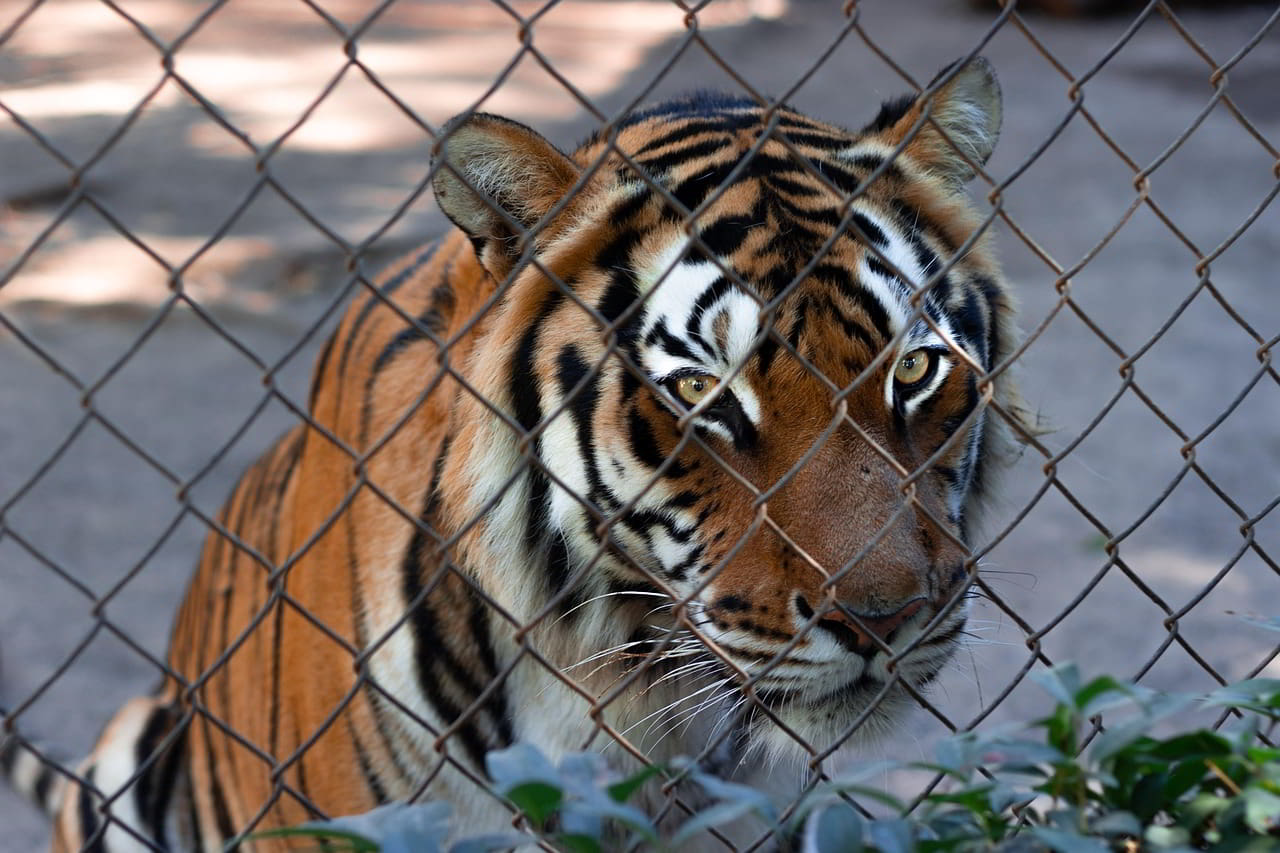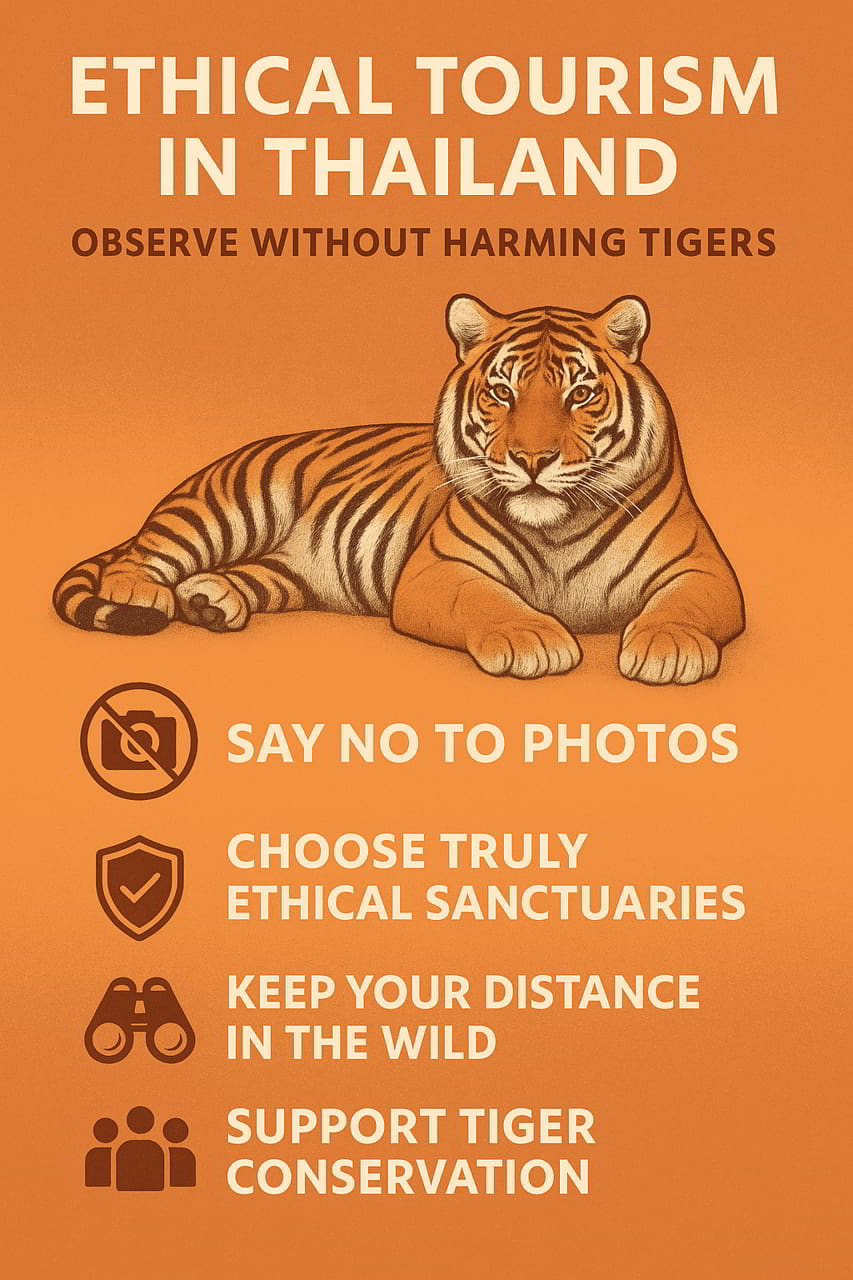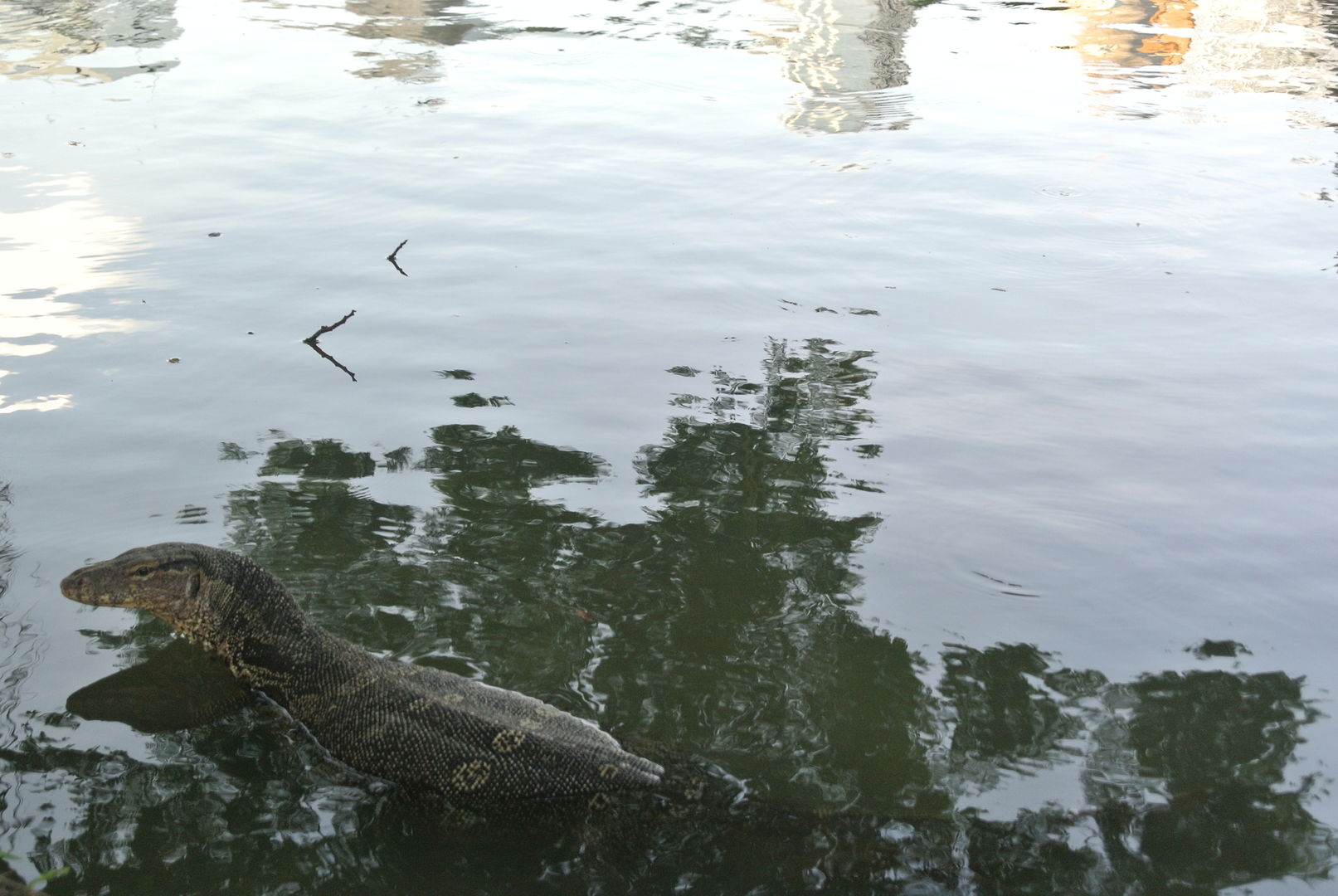
Thailand's Tiger Tourism: Why Change Is Urgent for Wildlife Ethics
Thailand attracts thousands of tourists each year, many drawn by the chance to see and touch tigers. But behind the photos and petting sessions lies a disturbing reality: captivity, animal suffering, and wildlife exploitation.
Tiger parks are now a staple of wildlife tourism in Thailand. Yet these attractions raise serious ethical concerns. Often caged, sometimes sedated to remain docile, tigers are forced into unnatural interactions with tourists. It’s time to rethink our travel choices and protect these majestic animals.
Tiger Parks in Thailand: A Controversial Tourist Attraction
A recent incident involving a tourist at a tiger park in Si Racha reignited debate about these facilities that allow direct contact between humans and big cats. The park’s managers dismissed it as human error, but such cases are not isolated. Confined, stressed, and often sedated, tigers are pushed into unnatural closeness with visitors.
Behind the Selfies: Captivity, Suffering, and Control
As emphasized by organizations like the WOAH, tiger cubs are often separated from their mothers early, denied natural social contact, and trained through coercion. Sedatives are sometimes used to make them more manageable. What tourists see as a magical moment is usually the result of long-term trauma and deprivation.
Animal Tourism: How to Tell a Sanctuary from Exploitation
Many parks call themselves “sanctuaries,” but few actually support conservation. A true sanctuary does not allow direct contact, offers spacious natural environments, and focuses on rehabilitation. Lack of transparency is a clear red flag. For example, WWF’s guide to wildlife tourism offers valuable insights on recognizing ethical wildlife experiences.
Ethical Alternatives: Observe Without Harming
Yes, there are better options. Some certified centers collaborate with wildlife protection NGOs. While ethical tiger sanctuaries exist, they are rare. Observing tigers in the wild—at a distance, without touching them—is the most respectful way to experience their beauty. Refusing a photo is already an act of protection.
What Our Fascination with Big Cats Reveals
The tiger has long symbolized power and mystery. But reducing it to a tourist prop distorts our relationship with animals. It becomes less about wonder, more about control. Tourism in the 21st century must be conscious and compassionate.
Frequently Asked Questions (FAQ)
Why are tiger parks dangerous?
Because they force wild animals to live in artificial settings and interact with humans, which causes stress, aggression, and accidents.
Do these parks help conservation?
No. Most tiger parks do not engage in breeding or rewilding programs. Their goal is profit, not preservation.
What are the alternatives for responsible travel?
Choose certified sanctuaries, avoid any direct contact with wild animals, and support local initiatives focused on conservation.
Why do tigers look so calm in photos?
Because they’re often sedated, weakened, or stressed. Their calm appearance is a sign of suffering, not peace.
How do I know if a sanctuary is ethical?
A real sanctuary won’t allow touching, posing, or shows. It will be transparent about its practices and work with wildlife experts.
Respecting Animal Welfare Is Everyone’s Responsibility
Animal welfare is often sacrificed for superficial tourist experiences. Every photo taken, every ticket bought at a tiger park helps perpetuate their captivity. Traveling responsibly means saying no to these practices. Respecting wild animals also protects our shared humanity.






